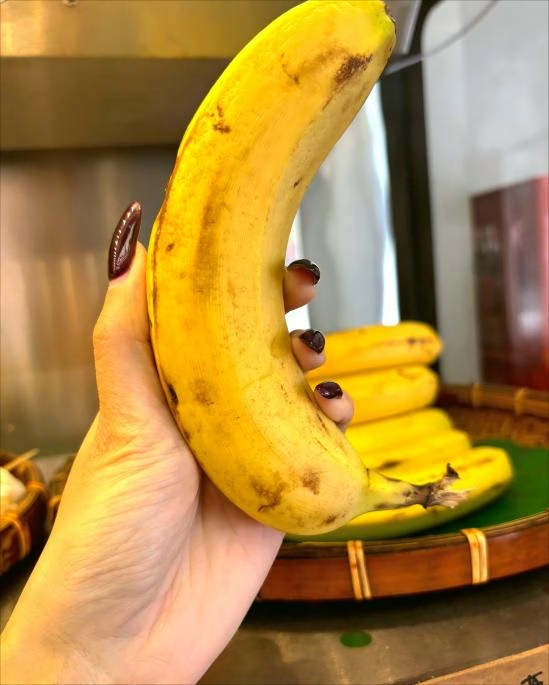“I heard you should choose curved bananas because they’re more fragrant, sweeter, and safer than straight ones. Is that true?” Is there any scientific basis for this claim? “Curved and straight bananas have the same nutritional value.” What other untrue rumors and misconceptions are there about bananas?
Bananas can improve gastrointestinal motility, replenish energy, prevent cramps, and even boost your mood!
They are also a beneficial starchy fruit rich in dietary fiber, which promotes gastrointestinal motility and aids digestion and bowel movements.
Bananas are also high in potassium. Potassium ions can enhance muscle strength and endurance, and they can also replenish potassium lost through sweating after exercise. The magnesium in bananas can help prevent cramps after exercise. Therefore, they are a great source of quick energy before and after exercise.
Bananas are rich in tryptophan, an essential amino acid that the human body cannot synthesize. Tryptophan is converted into the neurotransmitter serotonin in the body. Low serotonin levels can lead to symptoms such as depression, headaches, and anxiety. Serotonin helps us relax and relieve stress. It’s also a major component of melatonin, the hormone responsible for sleep. Therefore, it also has a sleep-inducing effect. This is why there’s a saying that eating bananas can make you feel happier.
Are curved bananas more nutritious?
Are bananas sprayed with ripening agents? Do they need to be stored in foil? Fake!
Bananas have a lot of nutritional value. When choosing, just look for plump, rounded fruits with rounded ends. The outer edges of the peel aren’t noticeably angular, and there’s no bruises, bruises, or signs of overripeness or rot. Whether a banana is curved or straight doesn’t affect its flavor or nutritional value at all!
The following three banana myths are false:
Myth 1. Curved bananas are riper and more nutritious than straight bananas.
Why are bananas curved? During their initial development, the banana buds grow geotropically, along with the flower buds. Then, they slowly change to a geotropic, phototropic growth pattern. This causes the buds to expand nearly parallel to the ground and then curve upward toward the light. The development of the fruit finger is influenced by many factors, including cultivar, thinning and bunching techniques, season, fruiting location, and variations. These factors can all lead to variations in the shape of the fruit finger. However, this does not affect the flavor or nutritional value of the fruit.
False Myth 2: Spraying ripening agents on green bananas requires washing for better storage.
Currently, green bananas are not ripened by spraying ripening agents on the skin. Instead, they are ripened using trace amounts of ethylene gas combined with temperature control. Ventilation is provided during the ethylene ripening process to remove any remaining ethylene, eliminating any residual ethylene residue and the need for washing, which poses no safety concerns.
Bananas are climacteric fruits (common climacteric fruits also include apples, mangoes, papayas, etc.) and naturally release ethylene.
After the banana stalk is cut from the stem, the added ethylene during the ripening process accelerates the banana’s own ethylene production, causing the banana to begin ripening later. This is completely harmless to humans.
False Myth 3: Wrapping banana stems in foil can prolong their shelf life.
As bananas are naturally exposed to ethylene, the continuous production of ethylene also triggers the hydrolysis of the peel’s cell walls and the production of metabolites. This causes the flesh to become soft, the peel to peel easily, and the skin to age, leading to spots.
The claim that simply wrapping the stem can extend its life is false. Instead, it’s better to store bananas at low temperatures to slow down ethylene production.
The correct storage method is:
Storing ripe bananas in a cool, refrigerator-freezer container, wrapped in plastic wrap or a thin cloth, can extend their shelf life. The popular myth that washing bananas after purchase or wrapping the stems in plastic wrap or aluminum foil can extend their shelf life is false.


Leave a Reply